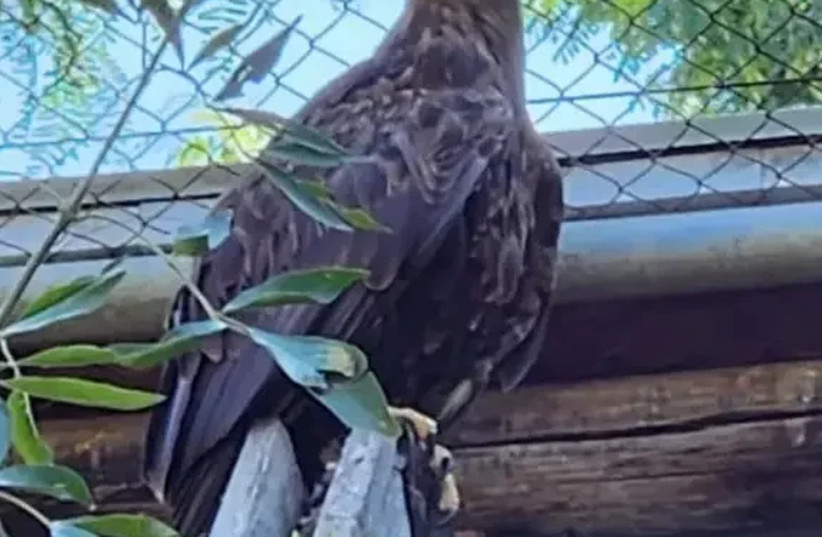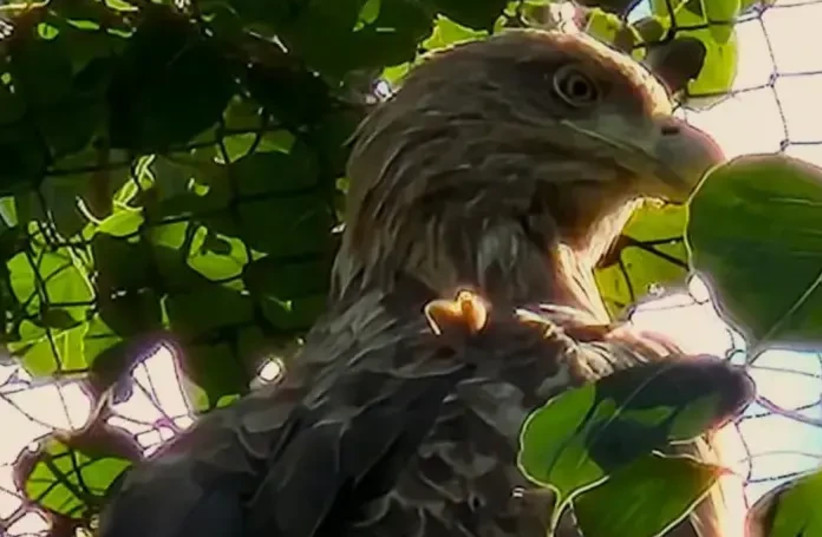The ongoing conflict has forced the country's citizens to adapt to various changes, and even the animals have not been spared.
Along with the evacuation of residents in the surrounding areas and the north, efforts have been made to relocate animals from the combat zone. The Ramat Gan Safari has been providing support and assistance to both humans and wildlife.
Recently, the Nature and Parks Authority transferred a pair of Haliaeetus albicilla (white-tailed eagles), a 20-year-old male and a 21-year-old female, from the Hai-Bar Carmel Nature Reserve to the Ramat Gan Safari. This precaution was taken due to previous fires in the Carmel Mountains that endangered animals in Hai-Bar. By moving them to a safer location, the authorities hoped to prevent any potential harm in the event of an attack.

The pair had previously lived in the safari until 2020, making it a familiar place for them.
Resettled
Relocating these remarkable and delicate animals is no easy feat, but the operation was successful, and the orphans have settled back into their old-new (and temporary) residence, the raptor nest in the safari. The staff members from the bird department, who had previously cared for them, continue to do so now, which provides a significant advantage for everyone involved. Remarkably, the deer appear calm and unaffected even in the presence of alarms and intercepted sounds.
A raptor ecologist from the Nature and Parks Authority expressed gratitude for the efforts of the zoos in conservation projects like Forishim Knaf, an initiative to protect birds of prey in Israel and prevent their extinction.
He emphasized the importance of collective efforts to protect nature, especially during times of threat, and praised the swift action taken by the safari to accommodate and protect the animals.
About Haliaeetus albicilla
Haliaeetus albicilla are the largest birds of prey in Israel that do not feed on carrion. They form monogamous pairs and build nests in tall trees, returning to the same territory each year. Until the mid-20th century, several pairs nested in Israel, which marks the southern limit of their distribution.

Unfortunately, the reproduction of these hawks in the wild was disrupted in early 2022 when the female of the last nesting pair was found dead in a poisoned nature reserve. This highlights the significance of the two Haliaeetus albicilla, and it is why their early evacuation was deemed necessary. In the 1970s, the Nature and Parks Authority established a breeding program in the Hai-Bar Carmel Nature Reserve to support the hawks' reproduction, nesting, and chick-raising until they are ready to be released into the wild.
The current breeding nucleus includes the pair of Haliaeetus albicilla and another pair from the Tel Aviv Zoological Garden. The duo has successfully fulfilled their role so far, with two of their offspring already reintroduced to the wild. One of them was even spotted returning to Israel following extensive migration and exploration in the north. The Haliaeetus albicillas thrive in disappearing humid habitats within the country.
They arrive in Israel in the fall, stay throughout the winter, and migrate north to Europe as spring approaches. This species faces numerous threats, such as the loss of moist habitats, poisoning, electrocution, wind turbines, infrastructure encroachment on migration routes, deforestation, and more. Their diet predominantly consists of large fish and they can also hunt various prey and scavenge carrion, including fish carcasses, egg carcasses of poultry, and small mammals.
The Environment and Climate Change portal is produced in cooperation with the Goldman Sonnenfeldt School of Sustainability and Climate Change at Ben-Gurion University of the Negev. The Jerusalem Post maintains all editorial decisions related to the content.
